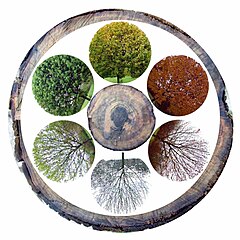A Promising Link Between the Immune System and Seasons

The variations in daylight duration and temperature that accompany the changing seasons are known to impact normal physiology across many species, including reptiles, monkeys, and humans. Beyond normal biology, researchers have long noted that many human diseases, and especially infectious diseases, can also vary with the seasons, suggesting a link to the immune system. In a recent study published in Nature Communications, researchers at the University of Cambridge investigated this link by looking at the flux of immune cells across seasons and how the levels of genes in those cells changed.
What they found was that many genes change with the seasons and correspond to broad shifts in the types and amount of certain immune cells. Despite claims in the popular media, this work does not represent is a verified, causal link between the immune system and seasonal changes in disease, and especially does not indicate why people tend to catch more colds in the winter. However, what this result does provide is an enticing possibility as to the cause of some seasonal biological variation that merits future confirmation studies in animals and in specific diseases with seasonal changes.
Acknowledgments: Many thanks to Lindsay Theodore, a graduate student in the from the Biological and Biomedical Sciences Program at Harvard University for providing her expertise and commentary on the topic.
Managing Correspondent: Adam Brown, Lead Correspondent
Original article: Widespread seasonal gene expression reveals annual differences in human immunity and physiology – Nature Communications.
Media coverage:
The Strange Way the Seasons Change Your Genes and Immune System – Yahoo Health
Seasons affect ‘how genes and immune system work’ – BBC News.
Related SITN articles:
An Introduction to Infectious Disease
The H1N1 Flu: a Simple Seasonal Sickness or an International Crisis?

